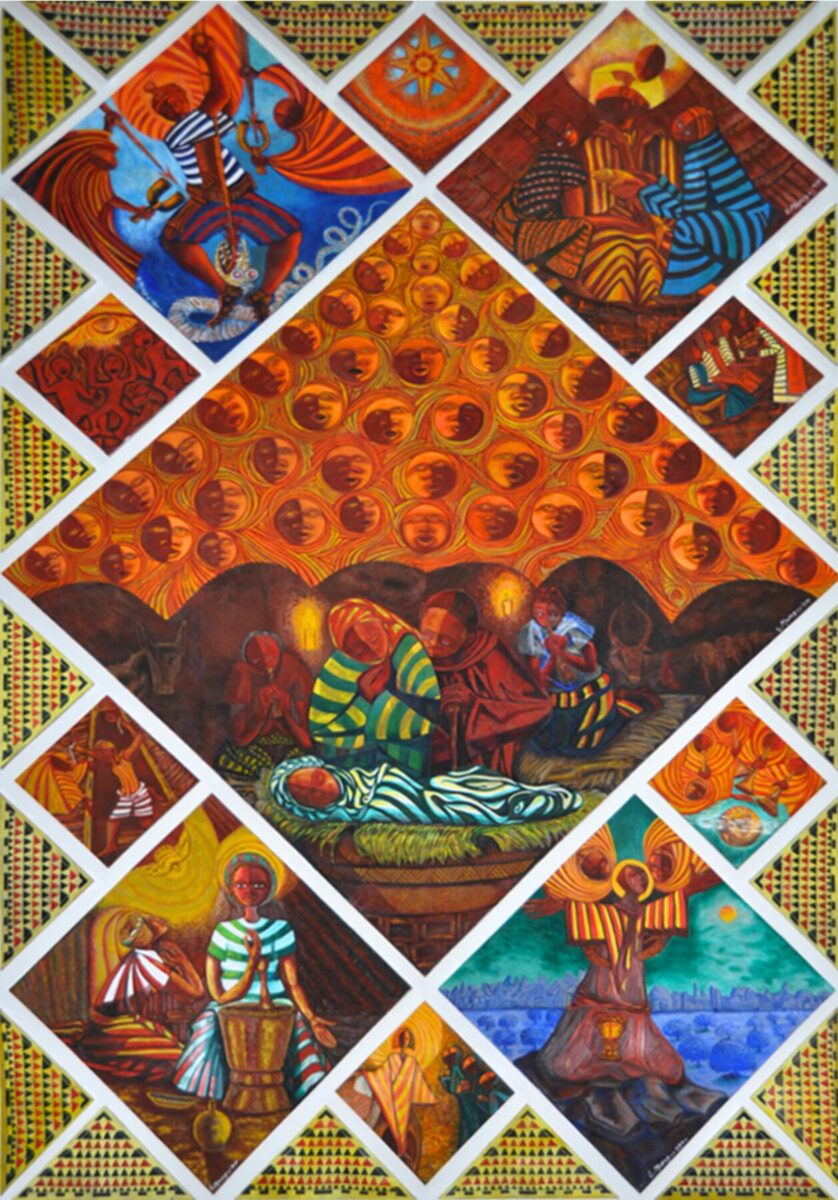Above the Sheepfold
 Dr. Gwenfair Walters Adams
Dr. Gwenfair Walters Adams
Above the fold: This is where the most important news commands the upper left corner of the front page of your daily paper, whether in print or online. Bad news tends to dominate that space: The latest front line in a war; another mass shooting in progress; riots, wildfires, even murder hornets; pandemic milestone statistics; erupting volcanoes and raging tsunamis. Breaking news breaking lives and hearts.
The most important news of all time, however, broke above a rather different kind of fold. A sheepfold. Or technically, a sheep field. And it came to mend, not rend, broken lives and hearts and world.
But the angel said to them, “Do not be afraid. I bring you good news that will cause great joy for all the people.”1
“Evangelizo!” the angel proclaimed. “I bring good news.” Evangelizo. To bring or announce glad tidings, good news, the gospel. It’s the Greek word that’s the basis for our English word, “evangelize.” The angel was bringing the evangel, the best breaking news ever. The God of the Universe had arrived. The second Person of the Trinity had just taken on human flesh and come to dwell among us.
Often when we read the news, we’re reading about other people and events that impact other towns, states, and countries. These matters are interesting, concerning, or enlightening, but usually they do not precisely pertain to us.
But this news—the Angel’s news—was directly relevant to the shepherds. He was not telling them something that had happened in a nearby village simply to keep them up on the neighborhood gossip. Rather, he delivered information that was meant for them. The angel brought good news “to or for” the shepherds. It would completely change their lives.
And that news wasn’t meant just for them, for the God of the Universe did not land on planet earth merely for a flock of shepherds. The plan was much bigger than that. “Through your offspring all nations on earth will be blessed,” God had promised Abraham. And now he was making good on that promise.
Martin Luther, the sixteenth-century reformer asked, “What would it help me if Christ had been born a thousand times and it were sung daily in a most lovely manner, if I were never to hear that he was born for me and was to be my very own?!”2
The Christmas story is not simply a sweet, wistful story about a long-ago event sung in carols and decorated with candy canes and mistletoe. It’s the announcement of the arrival of the Good Shepherd. The Lamb of God. The divine-human baby nestled in the trough where cows ate their feed. Emmanuel: God with us. It was good news. It is good news. And today it’s meant for you.
[1] Luke 2:10, NIV
[2] Benjamin T. G. Mayes and James L. Langebartels, eds., Luther Works (St. Louis: Concordia, 2013), 75:220.
[3] Paintings by Cameroon priest Rev. Englebert Mveng at Our Lady of Africa Parish (Chicago, IL). Learn more about the artist and mural.
 Dr. Gwenfair Adams is Professor of Church History and Spiritual Formation and Director of the Rosell Scholars Program. She is the editor of the Romans 1-8 volume in the Reformation Commentary on Scripture series, and her essay “The Controversy over Faith in Romans 3:28 in the Reformation,” is forthcoming in The Oxford Handbook of the Bible and the Reformation (Oxford University Press).
Dr. Gwenfair Adams is Professor of Church History and Spiritual Formation and Director of the Rosell Scholars Program. She is the editor of the Romans 1-8 volume in the Reformation Commentary on Scripture series, and her essay “The Controversy over Faith in Romans 3:28 in the Reformation,” is forthcoming in The Oxford Handbook of the Bible and the Reformation (Oxford University Press).